Part Two -- a Steemit debut, for the first time in written form, my interview with the great Ronny Jordan.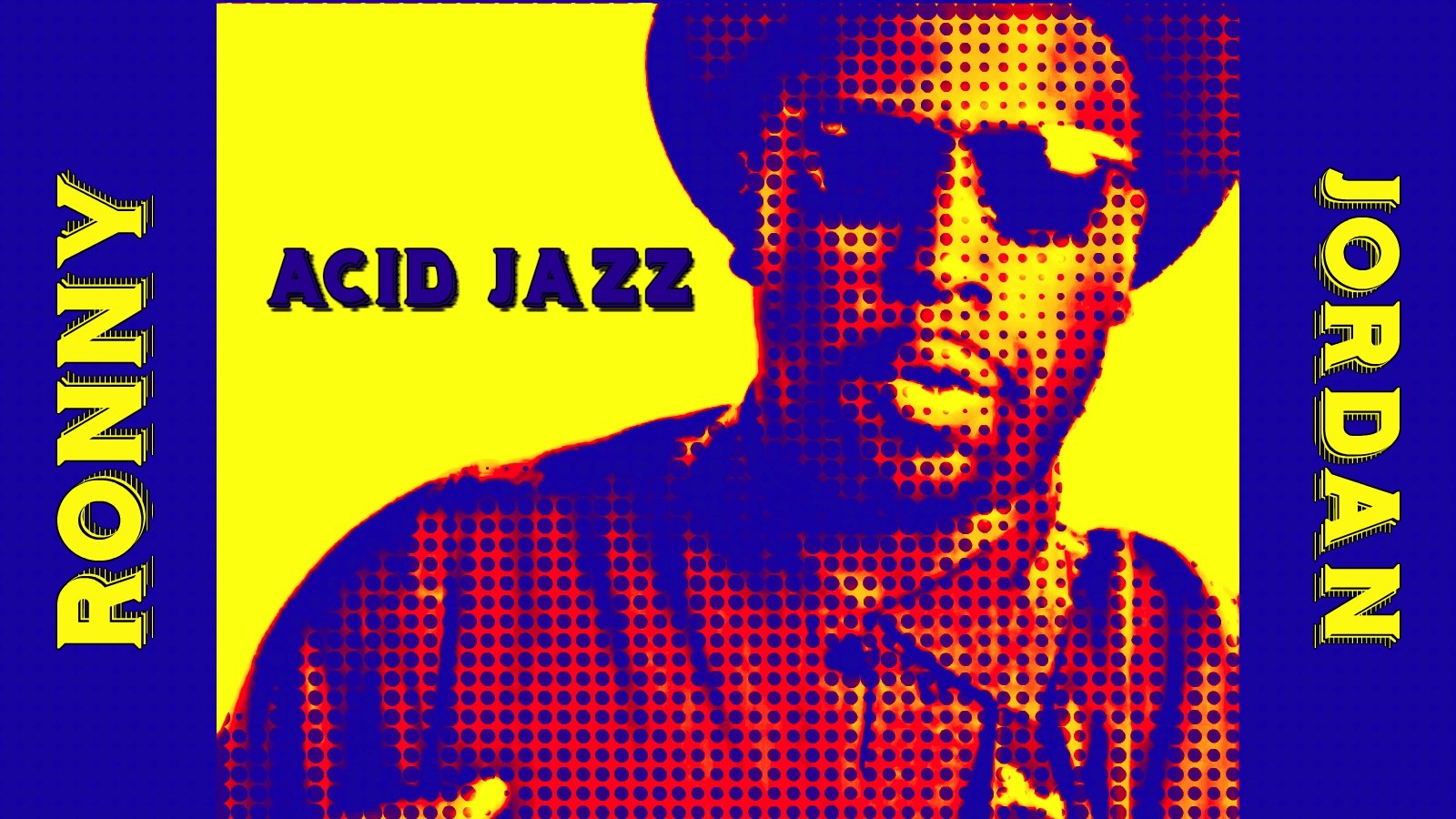 Click here for part 1
Click here for part 1
Ronny Jordan Interview Part 2
In remembrance of his loving spirit and musical gifts. He passed away in January of 2014 at the age of 51.
Why not listen while you read ;-)
Alan Bryson: Let me tell you about the first time I heard you, I was in Munich, and they have a big pedestrian zone. I was walking around and they had this huge record shop, World of Music. When you went downstairs they had hundreds of headphones hanging around, and each headphone was a different CD – the way it used to be back in the day.
And sure enough I went to the section where they had guitarists like Hiram Bullock and those kind of guys, and I saw your album The Antidote was there. But not just one, there were three copies and people were standing in line waiting to listen to it.
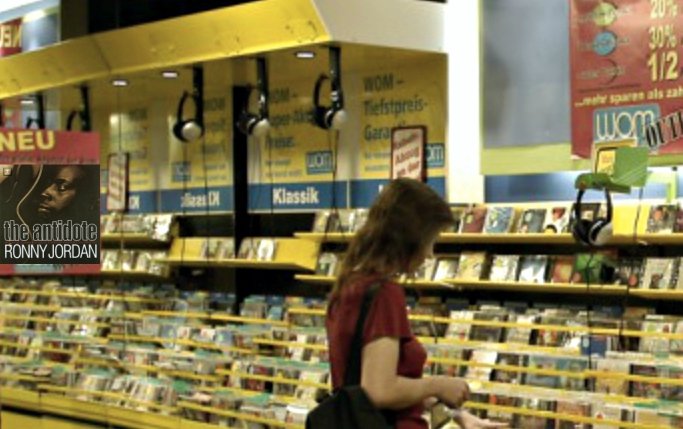
Not actually a shot from that time, just WoM with The Antidote album added.
Ronny Jordan: Whao
Alan Bryson: So I got in line, and I'll never forget it Ronny, when the music started, and I heard the opening bass lines on Get To Grips -- I thought wow! And then all the sudden the vibes came in, I was hooked right away.
I don't have all your albums, somehow I managed to miss Off the Record but I do have 8 of your albums, and I've never been disappointed, so I wanted you to know that.
Ronny Jordan: (Laughing) Oh thank you! You know, Off the Record is a really funky album, it's probably the funkiest album of all my albums. But then again so is my upcoming album Straight Up Street which is kind of like a nod to the past, because it sort of reminds me of an updated answer to The Antidote
Alan Bryson: I thought stylistically your last two albums were kind of intriguing, because one was like a tip of the hat to the past and what brought you to what you are, and your latest album is like a trip to the future, it's a side of Ronny Jordan we haven't yet seen. But before we get to those two, which draw things together really well, maybe we can first explore the road that brought you to where you are now.
I've read that your father was a preacher, and your early musical influences were from gospel music.
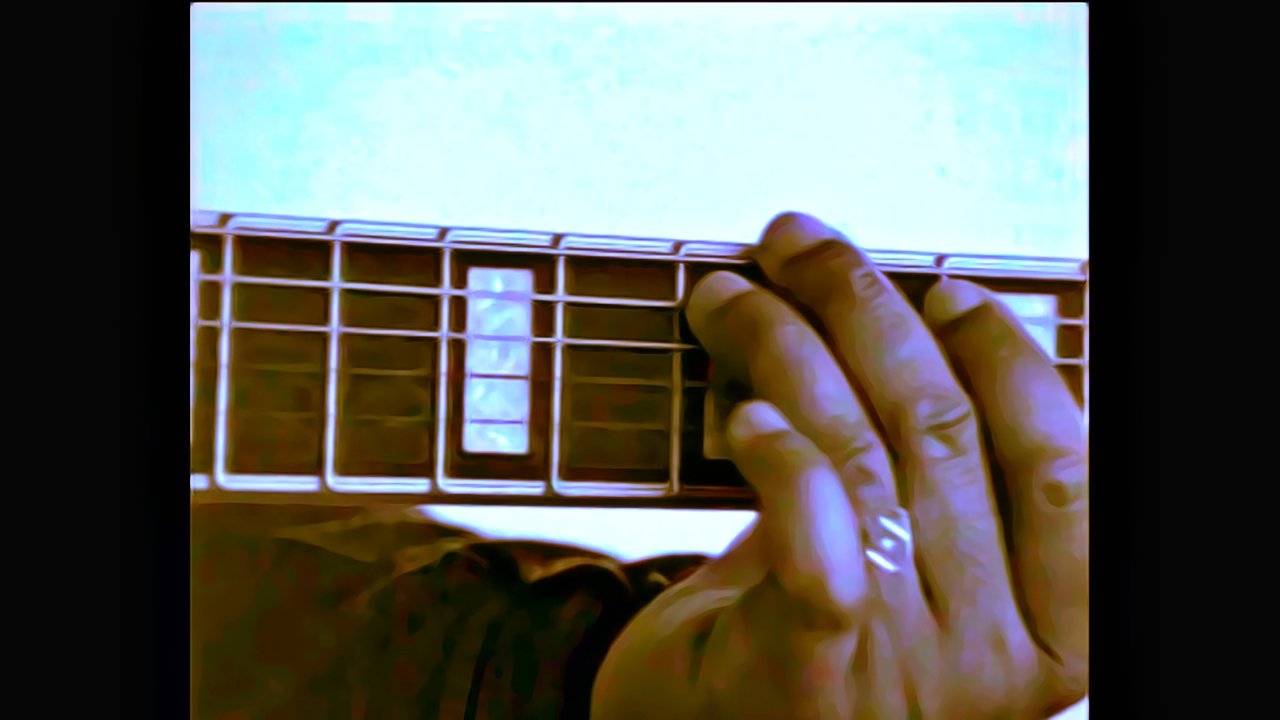 Ronny Jordan: From gospel and from my late father, God rest his soul. He owned an acoustic guitar and he only knew three chords. You know he was working too, so he used to come from work, and he was tired from 12 hour shifts and what have you, so he would just sit back and strum those three chords. (Laughing) A lot of times he would just fall asleep with the guitar, and I would watch him.
Ronny Jordan: From gospel and from my late father, God rest his soul. He owned an acoustic guitar and he only knew three chords. You know he was working too, so he used to come from work, and he was tired from 12 hour shifts and what have you, so he would just sit back and strum those three chords. (Laughing) A lot of times he would just fall asleep with the guitar, and I would watch him.
Of course back then the guitar was too big for me – this was back in the mid 60s, I was 3 going on 4, and on my 4th birthday my late father purchased a ukulele, like a small guitar, for my birthday -– this would have been November 1966.
Alan Bryson: So a ukulele, that's basically like the bottom four strings of a guitar, is that right?
Ronny Jordan: Yes, that's right. So essentially that was my first guitar, and my father bought me that in November of 1966 when I was four years old. So I'm self taught. I never went to music school. This is a gift from God. I can't read music – I don't know what half the chords I'm playing are. I mean I know the basic majors, it goes from A, B, C, D, E, F, G – so I know the major and minor chords, but all the other chords, I know a few of them, but I don't really know the names of the chords.
I was going to be sent to music school back in the 70s. The teachers at my school were aware of my talent, but one teacher, he was a Scottish gentleman by the name of Mr. Mackey, he was also a guitarist, he said no, don't send him. They were talking to my parents about this and they also said no, because in the end they all said it would change my style – and even by then my style was already unique. If I went to the school it would take it away, so they decided not to send me away.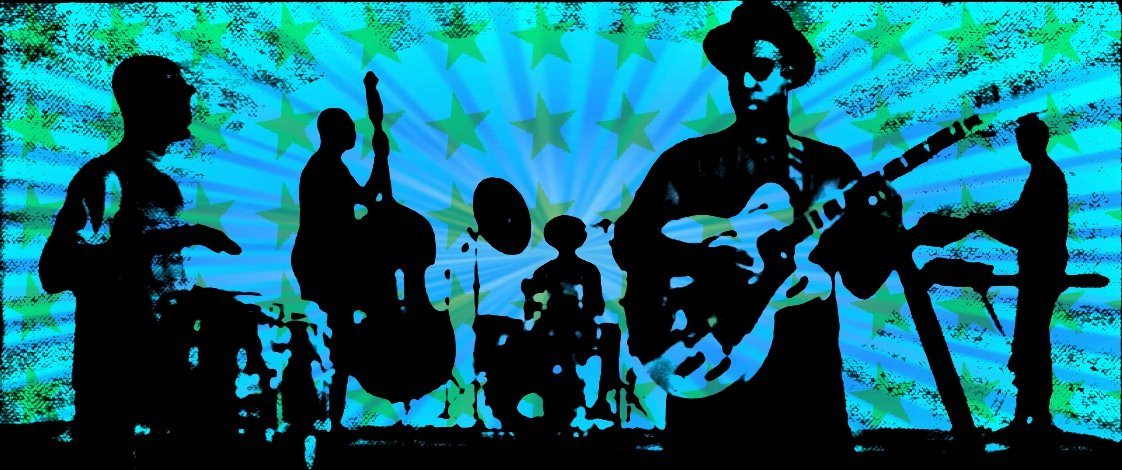 Alan Bryson: At what age would you have been when this was going on?
Alan Bryson: At what age would you have been when this was going on?
Ronny Jordan: I was about 8 or 9 because my late mother was still alive, so this would have been the early 70s.
Alan Bryson: So that early they recognized your talent.
Ronny Jordan: Yes, by then I was already playing in church. I have this unique fingering style, so Mr. Mackey, my school teacher, he recognized this would change my style completely, and I wouldn't be who I am, I wouldn't be the same. So in the end they decided not to send me to music school. And Mr. Mackey wherever he is, God bless him.
Alan Bryson: That was really insightful of him.
Ronny Jordan: Yeah, because when I started playing his jaw dropped. (Laughing) I was like a celebrity at the school. I was like a pop star, I was mobbed!
Alan Bryson: That kind of innate talent is something that really fascinates me. I read something that an academic wrote, I think it was a professor, and he maintained that great musicians are trained not born. And I've had the good fortune to interview some pretty great musicians and most of them were like you. When the right instrument dropped into their hands they went from zero to 80% really quickly, but it's the last 20%, I guess you could call it cutting and polishing the diamond, that's the hard part.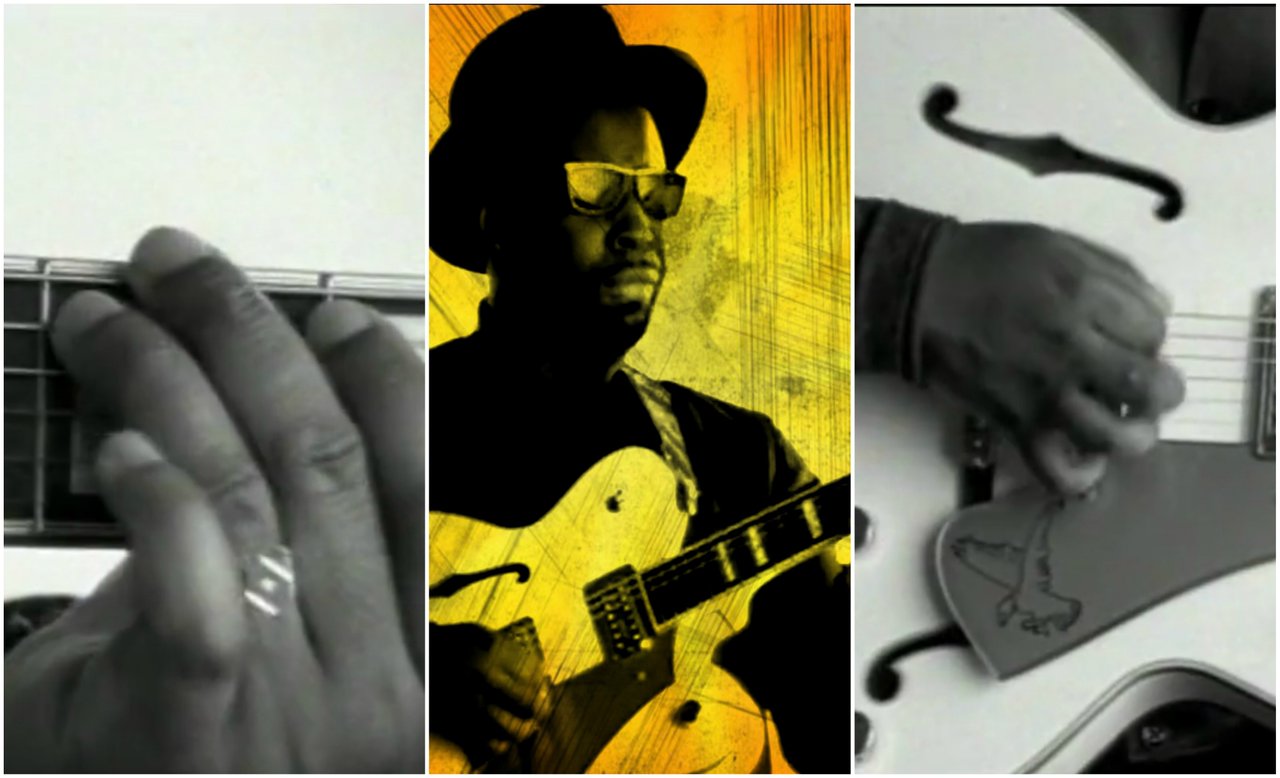 Ronny Jordan: That's right, yeah, and part of being a musician is being able to write. Because you can have all the ability, but you've got to be able to write your own music, because then your voice will come through. So fortunately for me, you know, I didn't go to school for that either, I just listed to a lot of music. I discovered jazz at thirteen, but I didn't start playing it until I was 21. So during those eight years I listened to a lot of music, so I learned what to do, and what not to do. So that's really how I came up.
Ronny Jordan: That's right, yeah, and part of being a musician is being able to write. Because you can have all the ability, but you've got to be able to write your own music, because then your voice will come through. So fortunately for me, you know, I didn't go to school for that either, I just listed to a lot of music. I discovered jazz at thirteen, but I didn't start playing it until I was 21. So during those eight years I listened to a lot of music, so I learned what to do, and what not to do. So that's really how I came up.
Alan Bryson: Excuse my ignorance on this, but gospel music in America in the black churches is a very distinct form of music. You grew up in the UK, in London, is the gospel church there similar, or where you playing a completely different kind of thing?
Ronny Jordan: No, it's pretty much the same, Pentecostal, that was our church, so the music was pretty much the same.
Alan Bryson: So they would have been buying records from gospel groups in America and emulating them?
Ronny Jordan: Yeah that's pretty much the same with jazz musicians in the UK, we would listen to a lot of American, and European jazz musicians, and then sort of form our own thing. Because you can never be the same as the next artist. You start with that artist, and somewhere along the way you develop your own style and find your own voice.
link part 3 of the interview.

I come from where anything can happen and usually does
You find tension where it used to be love
I use my words to shine light inside the dark valleys
The dark alley, U.K., U.S., New York, Cali
from: Dante Smith / J Campbell / S Lewinson
A Brighter Day lyrics / Royalty Network Music Publishing Ltd.
Photos (except WoM) are Vimeo screen captures with effects by @roused



